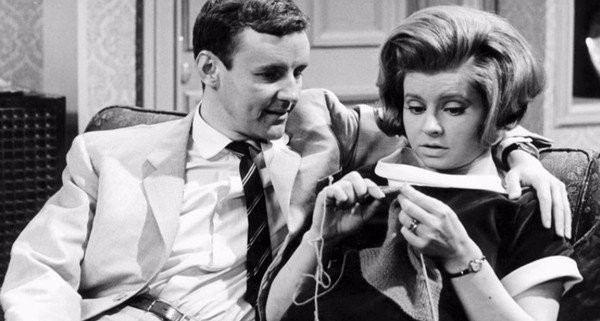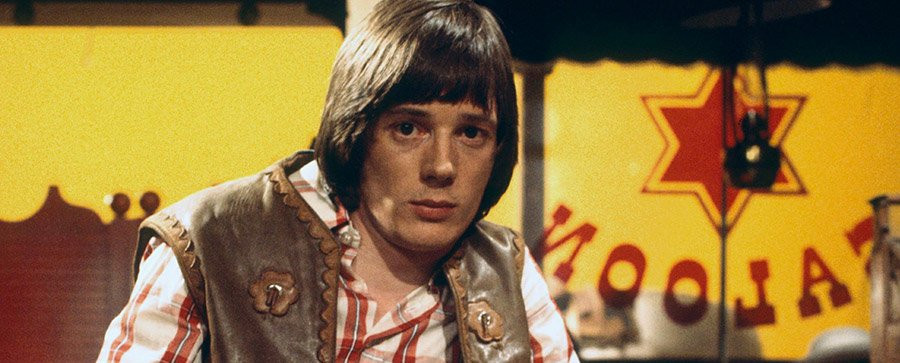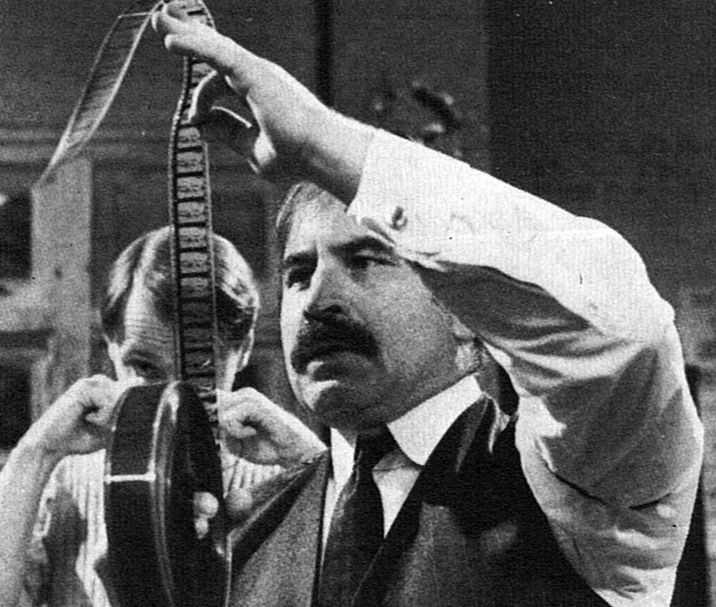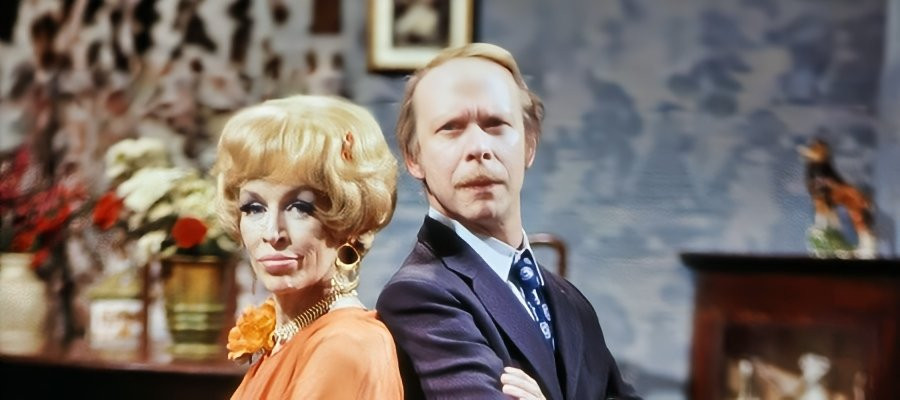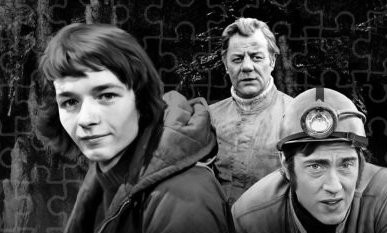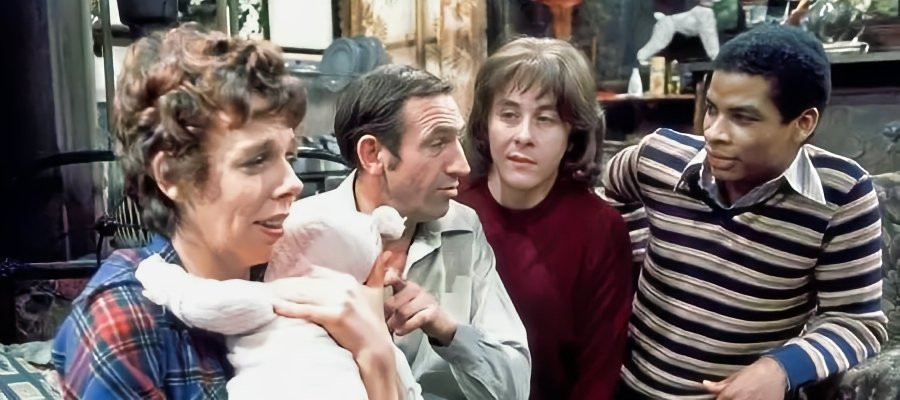
Rising Damp
1974 - United KingdomFew British sitcoms can lay claim to the iconic status of Rising Damp, a series that not only defined an era of television but also introduced the world to one of comedy’s most enduring grotesques: Rupert Rigsby. Beginning life as a stage play titled The Banana Box, the series was the brainchild of Eric Chappell, a former Electricity Board employee turned playwright. Chappell adapted his tale of a run-down boarding house for television, tweaking the name of its landlord from Rooksby to Rigsby and in doing so, crafted a character who would soon become a comic institution.
Rigsby, as portrayed by the incomparable Leonard Rossiter, was a marvel of contradiction — sleazy, prejudiced, miserly and hopelessly deluded, particularly when it came to his amorous ambitions toward the ever-disinterested Miss Jones (Frances de la Tour). It was a role steeped in pathos and farce, not unlike a hybrid of Steptoe and Alf Garnett. Indeed, Wilfrid Brambell, the original Rooksby on stage, helped shape this early iteration before Rossiter took the role on tour following its first run in Leicester. Rossiter, a former insurance salesman, brought a nervous energy and precise timing that transformed the character into something strangely sympathetic, despite his many shortcomings.
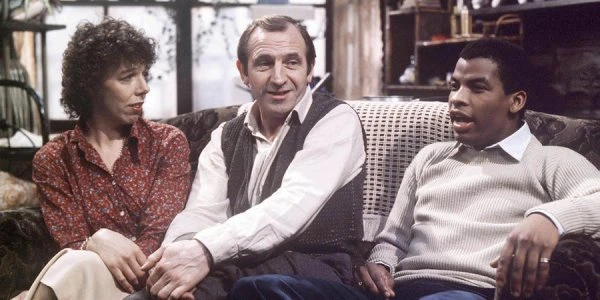
Rigsby’s world was one of perpetual disappointment and delusion, set against the crumbling backdrop of a damp tenement. He was frequently outwitted or undermined by his two male lodgers: Philip (Don Warrington), an educated and urbane black man who mercilessly played on Rigsby's ignorance with tales of African royalty, and Alan, the awkward, sexually inexperienced student. Initially played on stage by Paul Jones of Manfred Mann fame, Alan was recast for television with Richard Beckinsale, already a familiar face from The Lovers and Porridge. Beckinsale’s charm and gentle wit brought a sweetness to the role that beautifully contrasted with Rigsby’s bluster.
The stage production eventually transferred to the Apollo Theatre in London, where it caught the attention of Yorkshire Television executives. A one-off pilot was commissioned, and only three months after it aired, the first series arrived to immediate acclaim. Rising Damp swiftly became a staple of the ITV schedule, with Rossiter's exaggerated "My-y-y-y God!" and his ever-present sleeveless cardigan becoming indelible parts of British popular culture.
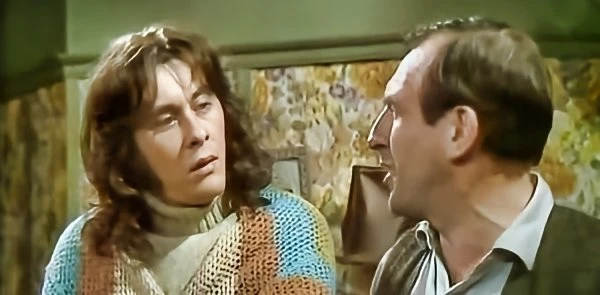
While the series ran for 28 episodes, not all featured Beckinsale, who left before the final series. His untimely death at the age of just 31 cast a shadow over the show’s legacy, a poignant reminder of a talent lost far too soon. In 1980, a feature film adaptation was released with Christopher Strauli stepping into the role of Alan. Though competently made, the film lacked the tightness and claustrophobic charm of the original series.
Attempts to export the magic to America ended in failure. Peter Stone’s adaptation, retitled 27 Joy Street and starring Jack Weston, never aired — a clear indication that some comedic alchemy simply doesn't translate.
Yet in Britain, Rising Damp endures. Its blend of character-driven comedy, social commentary and richly drawn performances places it firmly alongside the greats of the genre. Chappell’s writing, sharpened through the rigour of stagecraft, gave the series a depth and poignancy that set it apart. Rossiter’s Rigsby remains one of television’s most unforgettable figures — a man as pathetic as he was funny, as offensive as he was oddly pitiable.
Rising Damp was not merely a sitcom; it was a perfectly observed study of loneliness, delusion, and the British class system, played out in a crumbling house with damp walls and even damper dreams.
Seen this show? How do you rate it?
Seen this show? How do you rate it?
Published on May 1st, 2025. Written by Laurence Marcus for Television Heaven.



